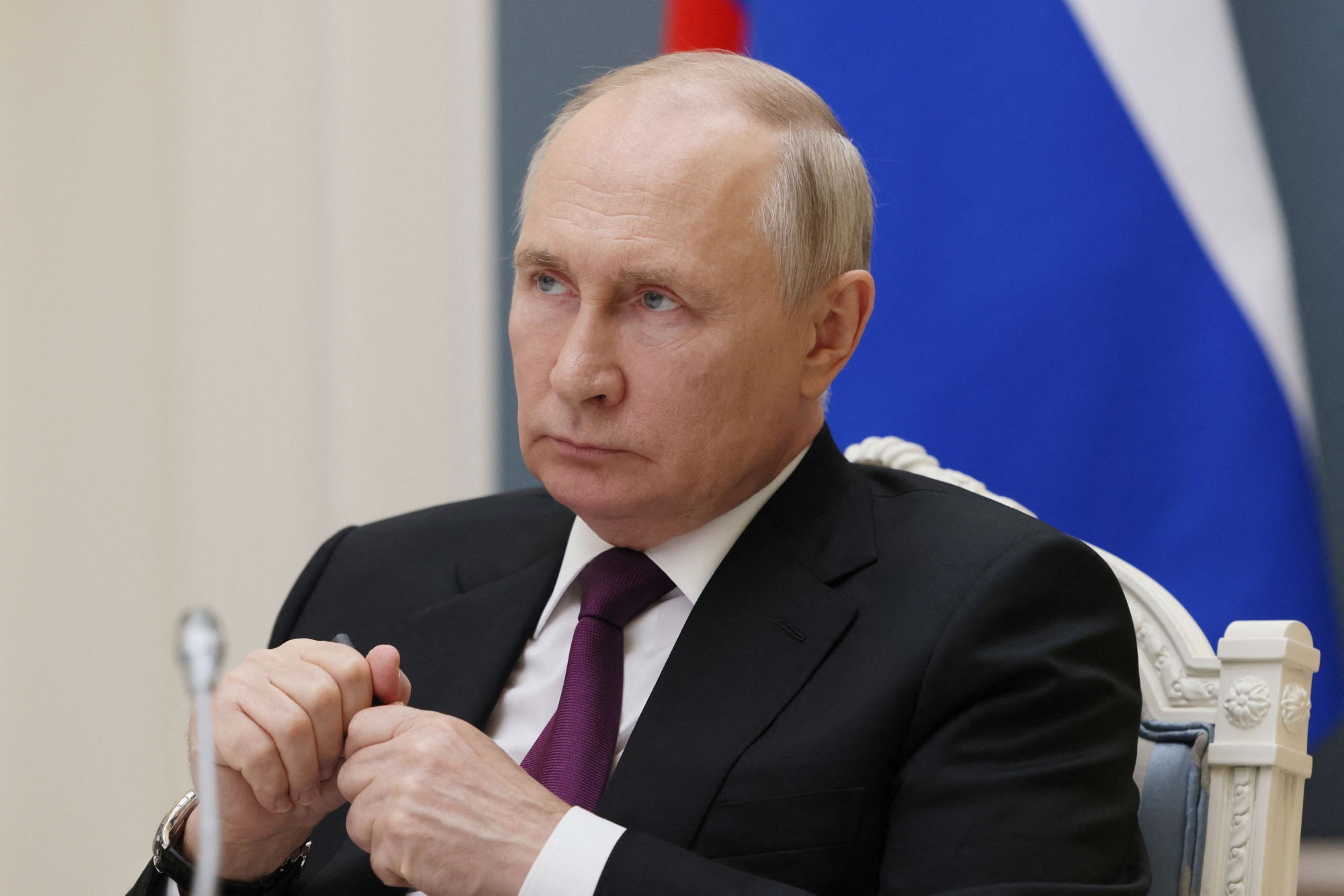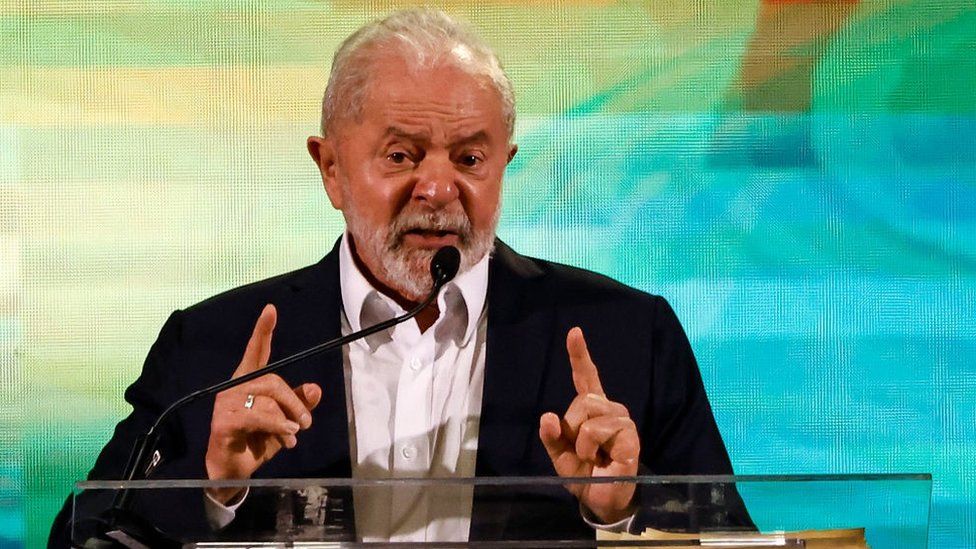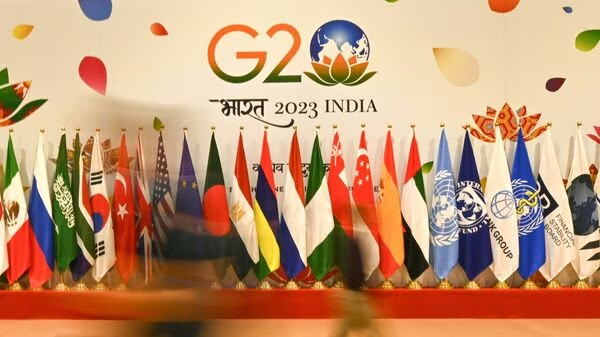Brazilian President Lula Welcomes Putin To 2024 Rio G-20 Amid Arrest Concerns
Brazilian President Lula welcomes Putin to 2024 Rio G-20 summit. In a news conference in New Delhi following this year's G-20 summit, President Lula asserted that the decision on whether or not Vladimir Putin would be subject to arrest during his visit would be determined by Brazil's judiciary, not by him.
Author:Suleman ShahReviewer:Han JuSep 11, 20236.1K Shares437.2K Views

Brazilian President Lula welcomes Putin to 2024 Rio G-20summit. In a newsconference in New Delhi following this year's G-20 summit, President Lula asserted that the decision on whether or not Vladimir Putin would be subject to arrest during his visit would be determined by Brazil's judiciary, not by him.
Putin's Invitation To The G-20 Summit
President Lula confirmed that Vladimir Putin would indeed be invited to the G-20 summit scheduled to be held in Brazil next year.
Putin had opted not to attend this year's G-20 summit in New Delhi, along with Chinese President Xi Jinping.
“„What I can say to you is that if I'm president of Brazil, and he comes to Brazil, there's no way he will be arrested.- Brazilian President Luiz Inacio Lula da Silva
President Lula's comments come in the wake of the International Criminal Court (ICC) issuing an arrest warrant against Vladimir Putin.
In March, the ICC accused Putin of war crimes, specifically related to the forceful deportation of hundreds of Ukrainian children.
It's important to note that Russia vehemently denies any wrongdoing, asserting that their armed forces did not illegally deport children or commit war crimes.
The G-20's Stance On Russia
This year's G-20 summit in New Delhi recognized the ongoing conflict in Ukraine and the suffering it has caused. However, the group did not explicitly call out Russia in its statement.
The G-20 nations emphasized that while they are primarily focused on international economic cooperation, they acknowledge that geopolitical and security issues can significantly impact the global economy.
“„All states must refrain from the threat or use of force to seek territorial acquisition against the territorial integrity and sovereignty or political independence of any state. The use or threat of use of nuclear weapons is inadmissible.- G-20 statement
Meanwhile, in the Ukrainian conflict, reports have emerged that proxy officials in Russian-occupied Melitopol, located in the Zaporizhzhia Oblast, have established cell towers to eavesdrop on residents and identify dissidents.
The situation in Russian-occupied territories remains difficult to ascertain, but exiled officials like Ivan Fedorov continue to provide information on these developments.
Notably, after news surfaced that a Russian helicopter pilot had defected to Ukraine, there was a substantial increase in calls to a hotline set up for Russian soldiers seeking to surrender to the Ukrainian military.
This hotline, known as 'I Want to Live' in Russian, was launched in September 2022 by Ukraine's Main Directorate of Intelligence.
It aims to facilitate the surrender of Russian military personnel and promises compliance with the Geneva Conventions for those who surrender.
President Biden's Challenges At The G-20 Summit
In the backdrop of these developments, President Joe Biden faced challenges at the G-20 summit in India. Despite his efforts, he was unable to secure unified condemnation of Russia's actions in Ukraine from world leaders.
Notably, both Vladimir Putin and Chinese President Xi Jinping were absent from the summit. Despite their absence, Russia and China were able to avoid explicit criticism regarding the Ukraine conflict.
Instead, the G-20 nations issued a statement emphasizing the need to refrain from using force for territorial acquisition and acknowledging the suffering caused by the ongoing war.
In a surprising revelation, Kyrylo Budanov, the head of the Main Ukrainian Intelligence Directorate, disclosed that Ukrainian forces have been utilizing Elon Musk's Starlink satellite systems on all fronts of their conflict with Russia.
These satellite systems have proven effective in enhancing communication and connectivity for Ukrainian forces engaged in the conflict.
President Lula's statement regarding Vladimir Putin's potential arrest at the G-20 summit has added a new layer of complexity to international relations, and it remains to be seen how this development will impact diplomatic efforts moving forward.
Final Words
In conclusion, Brazilian President Luiz Inacio Lula da Silva's recent statement regarding the potential arrest of Russian President Vladimir Putin at the G-20 summit in Brazil has created significant intrigue in international diplomacy.
The issue now lies in the hands of Brazil's judiciary, introducing uncertainty into the upcoming summit.
Additionally, the G-20's failure to explicitly condemn Russia's actions in Ukraine during this year's summit highlights the complexities of global geopolitics.
Meanwhile, the use of Starlink satellite systems by Ukrainian forces showcases the evolving nature of warfare and technologyin modern conflicts.
These developments underscore the ever-changing dynamics on the world stage and the challenges faced by leaders in navigating international relations.

Suleman Shah
Author
Suleman Shah is a researcher and freelance writer. As a researcher, he has worked with MNS University of Agriculture, Multan (Pakistan) and Texas A & M University (USA). He regularly writes science articles and blogs for science news website immersse.com and open access publishers OA Publishing London and Scientific Times. He loves to keep himself updated on scientific developments and convert these developments into everyday language to update the readers about the developments in the scientific era. His primary research focus is Plant sciences, and he contributed to this field by publishing his research in scientific journals and presenting his work at many Conferences.
Shah graduated from the University of Agriculture Faisalabad (Pakistan) and started his professional carrier with Jaffer Agro Services and later with the Agriculture Department of the Government of Pakistan. His research interest compelled and attracted him to proceed with his carrier in Plant sciences research. So, he started his Ph.D. in Soil Science at MNS University of Agriculture Multan (Pakistan). Later, he started working as a visiting scholar with Texas A&M University (USA).
Shah’s experience with big Open Excess publishers like Springers, Frontiers, MDPI, etc., testified to his belief in Open Access as a barrier-removing mechanism between researchers and the readers of their research. Shah believes that Open Access is revolutionizing the publication process and benefitting research in all fields.

Han Ju
Reviewer
Hello! I'm Han Ju, the heart behind World Wide Journals. My life is a unique tapestry woven from the threads of news, spirituality, and science, enriched by melodies from my guitar. Raised amidst tales of the ancient and the arcane, I developed a keen eye for the stories that truly matter. Through my work, I seek to bridge the seen with the unseen, marrying the rigor of science with the depth of spirituality.
Each article at World Wide Journals is a piece of this ongoing quest, blending analysis with personal reflection. Whether exploring quantum frontiers or strumming chords under the stars, my aim is to inspire and provoke thought, inviting you into a world where every discovery is a note in the grand symphony of existence.
Welcome aboard this journey of insight and exploration, where curiosity leads and music guides.
Latest Articles
Popular Articles

